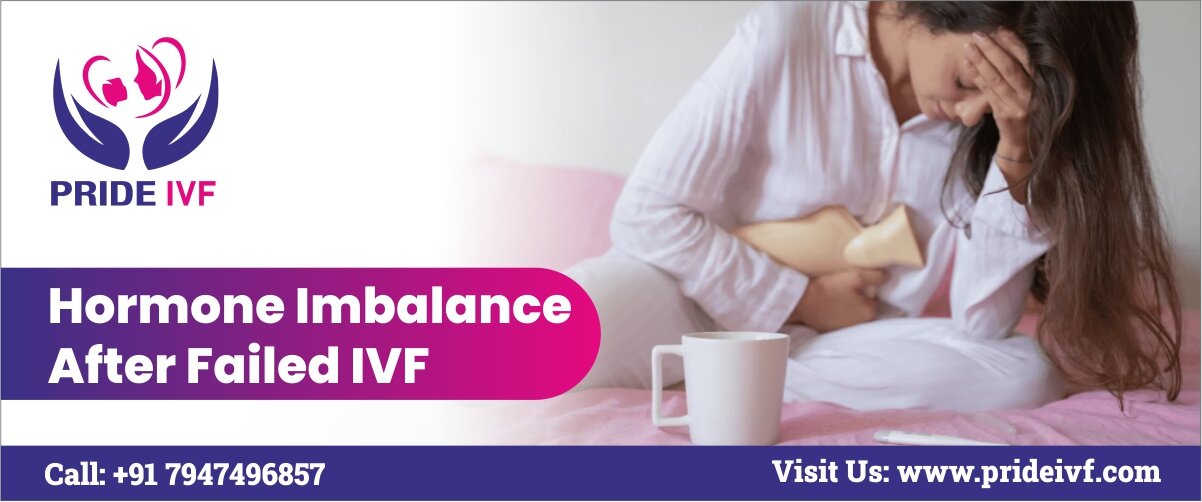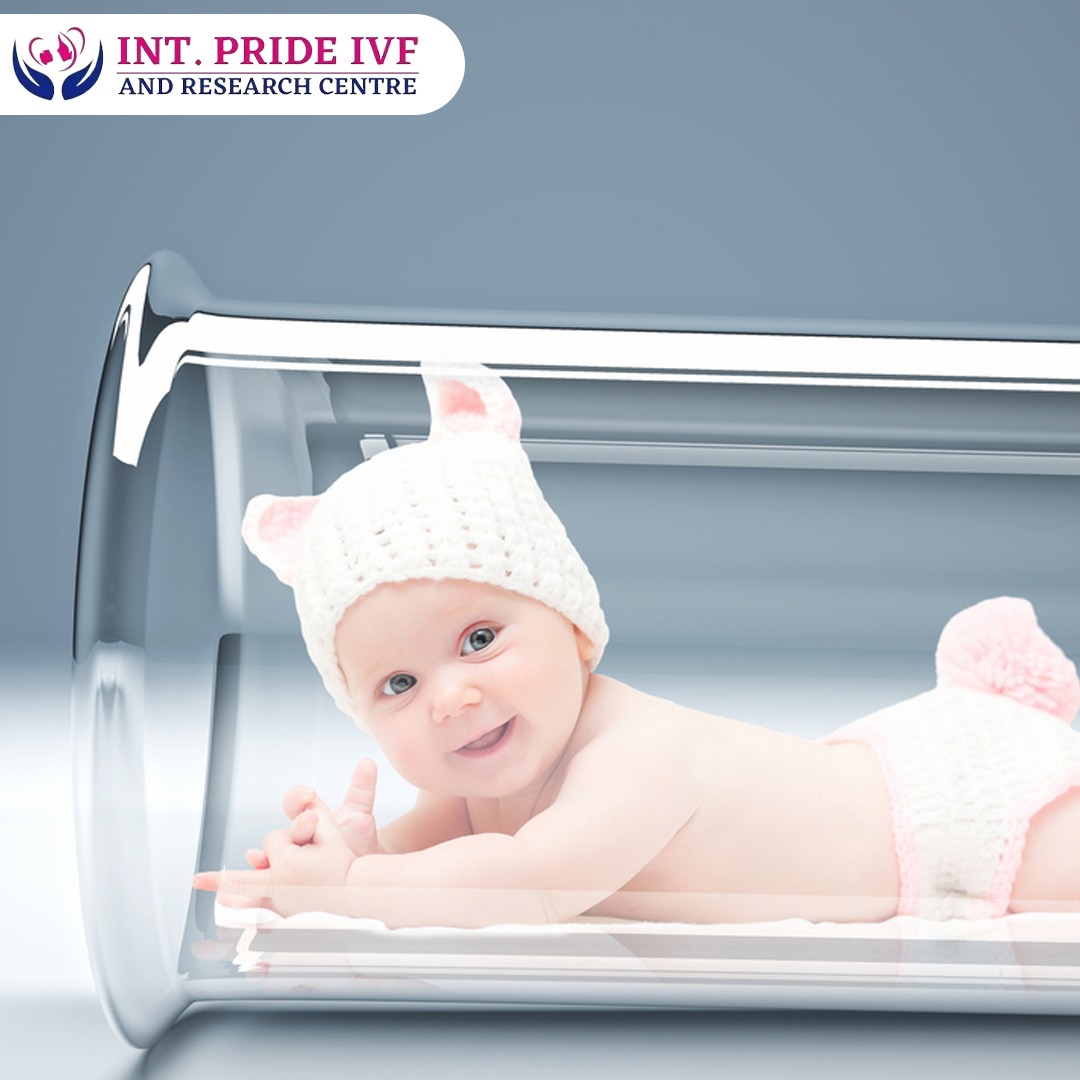In the world of fertility treatment, in vitro fertilization (IVF) offers hope to many couples struggling to conceive naturally. However, despite the advancements in medical science, IVF can sometimes result in disappointment when the desired outcome is not achieved. One of the potential repercussions of unsuccessful IVF is hormone imbalance, a condition that can have profound effects on both physical and emotional well-being. In this blog, we’ll explore hormone imbalance after failed IVF, discussing why it happens, its symptoms, and how it can be managed. Consult Pride IVF Centre in Delhi today for a better insight.




Role of Hormones in IVF
In IVF, hormones like estrogen, progesterone, FSH, and LH play vital roles. Estrogen helps eggs mature, while progesterone prepares the womb for implantation. FSH stimulates egg development, and LH triggers ovulation. These hormones work together to ensure the eggs are ready for retrieval and that the womb is receptive to pregnancy. Estrogen and progesterone help build a supportive environment in the uterus for the embryo to implant. By regulating the growth and release of eggs and preparing the womb, these hormones are crucial for the success of IVF treatments.
Understanding Hormone Imbalance After Failed IVF
Following unsuccessful IVF, hormonal imbalance can occur, leading to disruptions in the body’s natural hormone levels. Hormonal imbalance refers to irregularities in the production or interaction of hormones such as estrogen, progesterone, FSH, and LH. This imbalance can impact fertility and emotional well-being. When this delicate hormonal balance is disrupted, it can impede critical processes such as egg development, ovulation, and the preparation of the uterus for implantation, thereby complicating the chances of conception.
Causes of Hormone Imbalance After Failed IVF
Failed IVF can disrupt hormonal balance due to various factors:
- Stress: The emotional strain from unsuccessful IVF can trigger the release of stress hormones like cortisol, disrupting the delicate balance of reproductive hormones.
- Medication Side Effects: Some drugs used in IVF can interfere with hormone production or signaling pathways, leading to imbalances.
- Corpus Luteum Dysfunction: Corpus luteum dysfunction disrupts progesterone production, affecting uterine lining preparation for embryo implantation.
- Ovarian Dysfunction: Multiple rounds of ovarian stimulation during IVF can exhaust the ovaries, causing irregular hormone levels.
- Age Factor: Advanced age can affect the quality and quantity of eggs, impacting hormone levels needed for successful implantation.
- Thyroid Issues: Thyroid dysfunction alters levels of thyroid hormones, affecting reproductive hormone regulation, and potentially leading to failed IVF outcomes.
- Lifestyle Factors: Unhealthy lifestyle choices alter insulin sensitivity, leptin levels, and inflammation, affecting reproductive hormone regulation and reducing IVF success rates.
- Polycystic Ovary Syndrome(PCOS): PCOS disrupts ovulation, leading to high levels of male hormones, insulin resistance, and irregular menstrual cycles, affecting IVF outcomes.
- Pituitary Disorders: Pituitary disorders disrupt gonadotropin hormone secretion, crucial for follicle development and ovulation, affecting IVF success.
- Genetic Factors: Genetic mutations affecting hormone receptors or production pathways can lead to irregularities, affecting IVF outcomes negatively.
Understanding the potential causes of hormonal imbalance following failed IVF is essential for best decision-making.
Lets get started
Symptoms of Hormone Imbalance after failed IVF
Hormone imbalance after failed IVF can manifest in various ways, including:
- Irregular menstrual cycles: Changes in the length or regularity of periods. (Also Read: When to Expect Period After Failed IVF?)
- Mood swings: Unexplained shifts in emotions ranging from sadness to irritability.
- Weight fluctuations: Sudden gain or loss of weight without changes in diet or exercise.
- Fatigue: Persistent tiredness despite getting enough rest.
- Hot flashes: Sudden feelings of warmth, often accompanied by sweating.
- Decreased libido: Reduced interest in sexual activity.
- Hair loss: Thinning of hair on the scalp or increased body hair growth.
- Insomnia: Difficulty falling asleep or staying asleep.
- Skin changes: Acne, dryness, or other skin issues.
- Digestive problems: Such as bloating or constipation.
Understanding what happens to your body after failed IVF becomes important. It’s important to note that these symptoms can vary in severity and may not all be present at once. If you notice any of these signs persisting or worsening after IVF, it’s crucial to consult with a healthcare provider. They can assess your hormone levels and provide appropriate guidance and treatment to address any imbalances.
Management of Hormone Imbalance
Managing hormone imbalances involves several approaches tailored to the individual’s needs:
- Diagnosis through blood tests: Measure hormone levels to identify imbalances.
- Lifestyle modifications: Encourage healthy diet, exercise, and stress management.
- Hormone Replacement Therapy(HRT): Prescription medications containing estrogen, progesterone, or a combination of both to supplement hormone levels.
- Ovulation induction: Medications to stimulate egg production in the ovaries.
- Thyroid medication: Prescribed to manage thyroid hormone imbalances, ensuring optimal thyroid function critical for fertility.
- Gonadotropin injections: Administered to stimulate ovulation in women with hormone imbalances, these injections help regulate follicle-stimulating hormone (FSH) and luteinizing hormone (LH) levels.
- Surgical interventions: Correcting underlying issues like polycystic ovary syndrome (PCOS) or endometriosis through minimally invasive surgeries.
- Emotional support: Counseling or support groups to address the emotional impact of failed IVF and hormone imbalance.
Monitoring symptoms and consulting the best IVF doctor in Delhi are essential for effective hormone imbalance management.
Looking Ahead
Looking ahead, it’s important to understand that experiencing a failed IVF cycle doesn’t signify the end of your journey toward parenthood. While it may feel disheartening, there are alternative paths to explore, such as adoption or donor conception, which can offer new opportunities to expand your family. These options provide avenues for fulfilling your desire to become parents and can bring immense joy and fulfillment. Emphasizing resilience, continue to move forward with determination, knowing that there are still possibilities for achieving your dream of parenthood despite setbacks along the way.
Conclusion
Hormone imbalance after failed IVF can pose significant challenges for individuals striving to build their families. By understanding the underlying causes, recognizing the symptoms, and implementing appropriate management strategies, individuals can navigate this aspect of the fertility journey with hope. It is essential to seek guidance from qualified healthcare professionals who can offer personalized care and support tailored to individual needs, fostering a sense of empowerment and optimism amidst adversity. Remember, while the path to parenthood may be fraught with obstacles, perseverance coupled with compassionate care can ultimately lead to fulfillment and joy.




